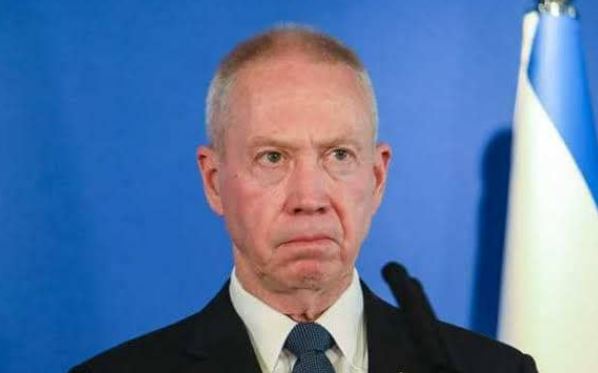In a surprising and consequential move, Israeli Prime Minister Benjamin Netanyahu has dismissed Defense Minister Yoav Gallant, appointing Israel Katz as his successor. This decision comes during an already turbulent period in Israeli politics and security, as the country remains embroiled in conflict with Hamas in Gaza. Netanyahu’s firing of Gallant and replacement with Katz adds a new layer of uncertainty to Israel’s defense strategy and could have broader implications, especially as the U.S. heads into an election year with heightened focus on foreign policy.
After the dismissal, a wave of protests swept through the country, caused by Gallant’s resignation.

Why Netanyahu Dismissed Gallant
Yoav Gallant’s firing reportedly comes after growing disagreements with Netanyahu’s handling of the conflict in Gaza. Gallant, a former general, has advocated for a more measured approach, cautioning against prolonged military engagements that might escalate tensions further in the region. However, Netanyahu has been resolute in his stance, aiming to pursue a strong-handed response to Hamas and asserting his commitment to protecting Israeli civilians and maintaining national security. Gallant’s dissent on these matters led to an increasingly public rift, with Netanyahu ultimately deciding to replace him.
By appointing Israel Katz as the new Defense Minister, Netanyahu has signaled his desire for alignment within his cabinet on key security issues. Katz is a seasoned politician with experience as both Foreign Minister and Minister of Transportation, and he is known for his strong stance on national security matters. Katz was drafted into the Israel Defense Forces (IDF) in 1973, serving as a paratrooper until his discharge in 1977, but he did not rise to a senior military command position, in contrast to his successor as defense minister, Yoav Gallant, who had been a general.
Gallant’s firing has sparked controversy across the political spectrum in Israel. Many Israelis view the change in leadership as ill-timed, coming at a moment when the country is already navigating high-stakes decisions on the military front. In addition, Yoav Gallant enjoyed significant support from the defense establishment, particularly from military officials who respected his experience and judgment. His dismissal has raised concerns about stability and consistency in the country’s defense strategy, with critics arguing that this internal reshuffling could hinder Israel’s ability to maintain a coordinated and effective response to Hamas.
Public reactions have also been mixed, with some seeing Netanyahu’s decision as a necessary step to ensure unity within the cabinet, while others view it as an unnecessary disruption during a crisis. Protests have erupted in major cities across Israel, with citizens calling for greater accountability and transparency in the government’s handling of security issues. The timing of this decision, with the Gaza conflict still unresolved, has only amplified public anxiety about Israel’s path forward.
U.S. Elections and the Impact on Israeli-U.S. Relations

The repercussions of Gallant’s firing are not limited to Israel alone; they could have significant implications for U.S.-Israel relations, especially as the U.S. gears up for a presidential election. The Biden administration has repeatedly emphasized the importance of a measured approach in the Israel-Gaza conflict, encouraging Israel to prioritize de-escalation and minimize civilian casualties.
For the Biden administration, balancing support for Israel with concerns over escalation in Gaza could become increasingly difficult. As U.S. voters are likely to be influenced by foreign policy stances in the upcoming election, the situation in Israel could play a role in shaping voters’ perceptions of candidates and their approaches to diplomacy.
With Israel Katz now at the helm of Israel’s defense ministry, the country’s approach to Hamas and security challenges is likely to be robust and assertive. Katz has long been an advocate for strong responses to threats, and he is expected to pursue a more aggressive stance than Gallant. However, whether this approach will bring stability or further escalation remains to be seen. The decision to remove Yoav Gallant mid-conflict also raises questions about how Netanyahu’s government will manage other areas of defense and security policy, especially if tensions with neighboring states like Lebanon or Syria increase.
A High-Stakes Moment for Netanyahu’s Government
Netanyahu’s decision to fire Yoav Gallant and appoint Israel Katz as Defense Minister marks a pivotal moment in Israeli politics. With the Gaza conflict still unresolved, this internal shake-up underscores the challenges of governing amid crisis and reflects the high-stakes nature of security decisions in the region. The move has already sparked controversy and raised questions about the future of Israel’s defense strategy, with repercussions that extend beyond Israel’s borders.

